We the People, The Battle for America
Part 2, Operation Don't Tread on Me, Preparing for Political Action: A Citizens Political Warfighter’s Manual
“Local action creates a national impact.” - General Flynn
Preface
Local action leads to a nationwide impact. Have you ever wondered what that means? What action needs to be taken? And what impact it will have on a national level? Well, what if I told you that you can pinpoint exactly which local actions are needed to make a specific impact on national politics? Precisely and accurately. You can also determine critical points and options for those decisions. The process is dynamic, adaptive, and incredibly effective for directing action, managing resources, manpower, and time.
In the next few articles, we will embark on a journey where I will demonstrate how local political actions can bring about a national political impact by using the military planning principle of "operational art". Operational art is the process of connecting national political strategy goals with the local political actions required to achieve those goals. This process helps identify key decisions, formulate backup plans, and outline the tasks necessary to achieve national strategic objectives. In other words, you are the plan. Planning from the top down and taking action from the bottom up.
“If politics bores you, then the corrupt politician adores you. Corruption is used by politicians when they are unchecked and unchallenged by knowledged well informed citizens. Challenging politicians takes education of our government, knowledge of how to use the system and the motivation to use it.” - SpartanAltsobaPatriot, 17th SOG
Table of Contents
Section 2 - Citizen Preparation
2.6 Morale
Section 3 - Education and Training for Planning
Section 4 - Operation: Don’t Tread On Me, Prerequisites of Planning
Section 5 - Rules of Engagement
Introduction
Many Americans feel like their political involvement is ineffective and powerless, due to the issues of mismanagement, corruption, and irregularities in the political system. This can be discouraging, but there are still ways to get involved and make a difference, even with busy lifestyles. By understanding the importance of planning and making small changes in our involvement, we can amplify our impact and create solutions to the problems we face.
It's essential to understand that a plan is a focused effort of actions aimed at solving a problem. But, if the problem is not accurately identified, then the solution cannot be applied, and the effort of action cannot be focused. This is where the issue of generalized accusations and assumptions within the MAGA community becomes problematic. It's crucial to avoid these generalized accusations and assumptions, and instead identify the problems accurately, understand the causes, and create actionable solutions. By doing so, we can improve our performance and create a larger impact in the political process. No focused effort of action is meaningless. Take the common phrases we see all the time,
We are at war! Generalized assumption and nothing to focus efforts of action.
We are corrupt! Generalized accusation and nothing to focus efforts of action.
The elections were stolen! Generalized accusation and nothing to focus efforts of action.
America is racist! Generalized accusation and nothing to focus efforts of action.
Devolution! Trump is still president! Generalized assumption and nothing to focus efforts of action.
The military is in control! Generalized assumption and nothing to focus efforts of action.
The law of war manual! We are in martial law! Generalized assumption and nothing to focus efforts of action.
Generalized accusations and assumptions detract from the fundamental purpose of creating a plan and its process: focused efforts of action towards solutions. Instead of making accusations and assumptions, we need to accurately identify problems, understand the root causes, and work together towards finding and implementing actionable solutions. This requires a unified effort and a shared focus on finding practical solutions.
Section 1 - Current Situation
The definition of insanity is doing the same thing over and over and expecting different results. - Albert Einstein
1.1 The Insanity
1.1.1 I recall my grandparents and parents lamenting about similar issues that we face today. For many Americans, political activism is not a high priority. Some paid individuals who run polling stations are mismanaging operations, leading to irregularities and opportunities for cheating. Additionally, corrupt individuals, including foreign interference, are exploiting this mismanagement and enabling cheating to occur.
1.1.2 Aside from having more participate, if management of some polling stations were done correctly, it would reduce irregularities and opportunities of cheating. And perhaps reduce individuals from taking advantage of the system and corruption would be reduced. The polling stations without issues have very good management and follow the law. This is just our voting process and procedure our levels of government manages. What about the other functions our government manages? But these issues mentioned are really just assumptions, rumors and hearsay. Or are they? What about all the other variables? Political party, corporate and government propaganda coming from all directions. Many of you can add more to this list.
1.1.3 And yet, we still do the same thing. Is it our fault? Is it our representatives fault? Is it the political and government system that’s flawed and corrupt? Is our grievance process to enforce accountability flawed? Are we not reporting issues, irregularities and crimes properly? Are local authorities not acting accordingly? As you can see, there are so many variables that can be blamed. Issues that compound can become a serious problem. If we are to take a logical approach, we have to assume that all these issues compounded is causing a severe breakdown of critical government processes. The severe breakdown of government processes can appear singular and unsolvable. So what do we do? We have to look at things differently.
1.1.4 This is our beloved country. We can’t let this go on. We can’t keep repeating the same thing over and over. We have to break the pattern. Think outside the box, get motivated, get creative, organize, coordinate and act. But those are just words, right? How can we put our words into action? Can you see the battle field now? Can you see that this is a civic political war? Our first step to action is accepting the situation we are in. “We are at Civic Political War.” Our government isn’t broken patriots, its the people running it that needs replacement.
“Success in warfare is gained by carefully accommodating ourselves to the enemy's purpose.” – Sun Tzu, The Art of War
1.2 We Are At War? What Kind of War?
1.2.1 This phrase has been implied and passed around like its cool for the past 5 years. A big issue we have is that we lack understanding of what “we are at war” means. Even though many throw that phrase around, I don’t think people realize the implication of the Phrase “We are at War” and how generalized it is. The main difference between a war and a civic political dispute is that a war involves two or more nations or armed forces in an open conflict, while a civic political dispute involves individuals or groups of people who disagree on an issue with regards to their society or government. Even so, just saying we are at war does nothing for us. At war with whom? Where is the battlefield? Who is fighting it? Who is the enemy? What weapons are used? HOW CAN WE WIN! I can ask many more questions to that generalized assumption.
1.2.2 The planning process defines all that I just mentioned and more. War has many different classifications. Wars often involve violence and destruction while civic political warfare is usually resolved through political activism. This is Civic Political Warfare, the only way we can begin to fight is to identify what classification of war it is. Once we identify classification of war, we can then start accurately processing a plan of action. The next thing we have to do is identify and prepare the warfighter in this civic political war. And that warfighter is you patriot!
1.2.3 This is our reality that we have to accept. We cannot just randomly use the term “We are at War.” We are at Civic Political War and the warfighter is you. This is the beginning, this is The Battle For America, Join or die. Join and fight or our founding principles of government dies.
1.3 The Patriots Self Reflection
1.3.1 Self-reflection is a powerful tool for learning and growth. By thinking about our own experiences truthfully, we can gain insight into our behavior, mental attitude, American core values and beliefs that we may not have noticed before. We can identify what we’ve learned from our successes and failures, and how we could improve in the future.
1.3.2 Self-reflection helps us to understand our motivations and emotions better, as well as to recognize how these can shape our behavior in different circumstances. It can also encourage us to take meaningful action in order to reach our goals and become the best version of ourselves.
1.3.3 Honest self-reflection allows us to assess our strengths and weaknesses, and create a plan for how we can bridge the gap between where we are now and where we want to be. Finally, self-reflection can help us become more mindful of ourselves and our environment, which can lead to greater clarity of thought and increased emotional stability in the heat of battle.
1.4 Evaluating Our Role in the Political Process as American Citizens
1.4.1 Before we can even think about planning to go to battle, we must identify our weaknesses. It is a crucial piece of the planning process. Self reflection is to see the problems. Evaluating is to process them and create solutions. This is the only way we can strengthen ourselves and prepare for battle. We the People, what is our role and how effective are we? Our role is not to be politicians, after all, we are a constitutional republic. Our role is to elect the right person that represents our best interests for our family and community.
1.4.2 We also enforce accountability with our vote and many other ways that we will be discussing. If representatives fall short or if they break their oath there are political weapons and processes we can use in a compounding and coordinated fashion. If we are to do this we first have to evaluate our performance of the role that we play. We need to create solutions to any problems and issues we identify. Truth is like a breath of fresh air at times. It can also be a spit of dragons fire that torches and burns everything in its path, reducing it to ashes of humility.
1.4.3 If we are not truthful with ourselves about the mistakes we make or the failures we have, then our personal, spiritual and professional growth will be limited. If our personal, spiritual and professional growth is limited, then our local political involvement will also. We cannot deny that many of us have not really pursued the action needed in local government to make the changes we need or want. We haven’t used the system to its full potential. Or perhaps, used it creatively. For some it’s because of the time constraints many of us have. Working to make a living to provide for our family is time consuming. Professional and family life takes most of our time and is why organization, coordination, creativity and critical thinking is needed.
1.4.4 Many have simply lost confidence in our system of government. And for some it’s as simple as lack of knowledge as to what to do. If we lack the knowledge then we lack the ability to be creative and think outside the box. Corruption grows like cancer if it goes unchecked and unchallenged. In most cases, corruption happens right in front of us and lack of knowledge is the reason why its unchecked or unchallenged.
Section 2 - Citizen Preparation
2.1 The Americans Creed
2.1.1 I believe in the United States of America as a government of the people, by the people, for the people; whose just powers are derived from the consent of the governed, a democracy in a republic, a sovereign Nation of many sovereign States; a perfect union, one and inseparable; established upon those principles of freedom, equality, justice, and humanity for which American patriots sacrificed their lives and fortunes. I therefore believe it is my duty to my country to love it, to support its Constitution, to obey its laws, to respect its flag, and to defend it against all enemies.
–Written 1917, accepted by the United States House of Representatives on April 3, 1918.]
2.1.2 Never forget. Never forget who you are patriot! You are an American. Our core values are simple and is what unites all of us no matter who you are. Freedom, Liberty, Independence, the pursuit of happiness and a government of the people, by the people, for the people. Never Forget!!
“that these dead shall not have died in vain– that this nation, under God, shall have a new birth of freedom and that government of the people, by the people, for the people, shall not perish from the earth” - U.S. President Abraham Lincoln, The Gettysburg Address, November 19, 1863
2.2 Civic Political Warfare Starts With You, The Citizen
2.2.1 The first thing that we need to do is prepare ourselves for what’s ahead. It’s a fundamental aspect of planning and strategy. The patriot, the soldier, you! Everything revolves around how YOU perform, what YOU think possible, what YOUR knowledge level of local, state and national politics is. The planning process will assist to build you up by gaining knowledge and confidence. Plans and strategy cannot be processed and produced without proper preparation of the most important asset, You the Patriot!
2.2.2 Every little change you make and knowledge you gain on the political process matters. With each small change and any knowledge gained it compounds to a large impact on the process and your performance. Gaining knowledge and educating yourself while maintaining a positive mental attitude is how the change we need begins. Your knowledge and mentality plays a big factor in the planning process for civic political warfare. And just the opposite is how we eliminate problems and issues causing them such as corruption. For example, breaking down corruption into small pieces allows for a compounded systematic solution that eliminates it.
2.3 Teamwork
2.3.1 During my time in the Navy, I served with an elite community of operators that I believe literally invented the concept of teamwork. As my platoon’s EOD Technician, during my two combat tours to Iraq with Seal Team Three and Seal Team Five, I learned the most valuable things that I still use today - the importance of teamwork and the effectiveness of planning. Those are the biggest lessons that keep me successful. Planning is what focuses effort and ensures success. The concept of teamwork and detailed planning that resonated as I served beside them I’ll never forget. When I share them with you I’m certain you won’t either.
2.3.2 Seals always used very simple phrases to articulate concepts. I learned many phrases like:
“Get comfortable being uncomfortable.”
“Two is one, one is none.”
“Team gear, your gear, you.”
“Life is hard, be harder.”
“The only easy day was yesterday.”
“You gotta want it!”
“I am never out of the fight.”
“It pays to be a winner.”
“Embrace the pain.”
“I persevere and thrive in adversity”
2.3.3 They were simple enough to never forget but packed with wisdom that had life-saving effects on the battlefield. This teamwork concept is taught by Seals to business professionals all over the country. And I think they are worth learning for We the People. We need our community, a team for what we need to do.
2.3.4 A Navy SEAL’s Definition of Teamwork: Selfless acts towards a common goal.
2.3.5 Selfless - Concern for inconvenience, personal discomfort, or personal agendas has no role on a team. Individuals with talents, skills and Critical thinking contribute selflessly for the team.
2.3.6 Acts - But without action, the knowledge and the words are worthless.
2.3.7 Towards - If I am not working towards something specific, I am filling a spot on the team that should be occupied by a person who is driven to move the team forward.
2.3.8 A Common Goal - A common goal for an effective team transcends individual goals.
2.3.9 Teamwork is critical for successful achievement of strategic goals.
“A political squad could take over a School Board easily.” - Andre, Freeatlantis.com
2.4 The Importance of a Political Community
2.4.1 Teamwork is essential for any political community to thrive. By working together, a political community or group can develop strategies to overcome its adversaries and hardships, which would be impossible to achieve with individual efforts alone. Through strong collective action, communities can find success and long lasting solutions to problems they may face. A political community is a vital component for achieving political success. It provides a platform to discuss and debate ideas about strategies, make decisions about strategic goals, operational objectives and prioritize tasks for local action.
2.4.2 A political community is an essential foundation for building capabilities as it is composed of people with diverse backgrounds, interests and skill-sets. A political community is an important part of the democratic process, as it allows citizens to participate in decision-making and influence their government.
2.4.3 A political community or group should be tailored to satisfy strategy goals, objectives and tasks specific to your local needs and limitations. The point is to identify your limitations, organize your manning, identify and focus required capabilities and provide specific purpose and direction. An example of how this can be accomplished is using a mission statement tailored to your local requirements. Those local requirements are created specifically from planned strategy. The mission statement in section 2.5 is an example of how to provide direction and purpose for your community or group . Your political community mission statement may be different as each community may require different direction and focus. Once you establish your mission statement you can accurately organize and structure manpower.
2.5 Manpower, Creating Your Political Community
2.5.1 When organizing manpower for political activism, it is essential to provide individuals with the opportunity to use their unique talents and abilities in order to maximize productivity and efficiency. Consider carefully both the tasks that need to be completed and the individual’s strengths when assigning tasks to ensure that all members of the team are contributing in the most effective way.
2.5.2 Purpose and direction. When organizing and recruiting to create your local political community or group, and the teams within, make sure there is purpose, clear direction and focused capability to accomplish your specific local direct action tasks. This example mission statement can include more or less detailed direction according to your requirements to accomplish goals and your specific limitations of manning and capability. The mission statement needs to be tailored to fit your needs.
2.5.3 Example mission statement:
Our mission is to develop and implement effective strategies for achieving our objectives and goals. We will strive to be informed about our organization's strengths, weaknesses, and opportunities in order to best utilize our resources and achieve success. Our activities will include planning and coordinating a variety of administrative and direct action tasks at the local, state, and national levels in order to achieve our goals. Additionally, we will continuously seek feedback from our members in order to ensure we are on track to reach our targets. Some activities include;
Researching potential target groups and analyzing the issues in order to understand the overall situation and come up with a plan for action.
Organizing, identifying and disseminating the various weapons of civic political warfare to your community or group and the teams within.
Building coalitions and alliances with other organizations on the local, state and national levels in order to create a unified front against those in power.
Developing communication strategies, including outreach methods such as developing print materials, setting up social media accounts, engaging in online organizing, and creating websites and email lists.
Developing creative tactics, such as using art, music, and other forms of media, to spread the message of their cause and recruit new members.
Working with media outlets to ensure that the story they wish to tell is being heard.
Planning effective actions that will be safe, legal, and effective at achieving the desired outcomes.
Keeping track of results and reporting back to other members of the organization.
Connecting with activists and supporters locally and internationally in order to build a larger network of solidarity.
Enforcing accountability with the use of weapons of civic political warfare detailed in section 3.3. Identify target issues and individuals. Utilize weapons of civic political warfare in an organized, coordinated and compounded efforts to maximize results.
2.5.4 Organization and Structure. Military forces are successful in warfare mostly because of their organization, employment of capability, systematic approach to educating and training their forces and structure of manpower. Citizens aren’t soldiers and militant environments are not very well revived. However, there are concepts, applications, principles and processes that the military uses that we as citizens can utilize. These concepts can be used for our purpose and can be implemented as we need them.
2.5.5 This is called “paralleled concepts.” Paralleled concepts require you to look at processes, applications and principles that are fundamental to how they are used. Looking at the benefits of using these fundamentals helps us understand how we can apply them for our purpose.
2.5.6 How the US military uses organization and structure of manpower is beneficial in several ways. First, it allows the military to be better organized, with clear lines of authority and chain of command. This ensures that orders, procedures, and regulations are followed, which helps to ensure the effectiveness of the military in carrying out its mission.
2.5.7 Second, it allows the military to maintain a more appropriate level of personnel for any given mission. By having a structured system of personnel, the military can make sure that it is not over- or under-staffed for any particular task. This ultimately leads to more efficient planning and greater effectiveness on the battlefield.
2.5.8 Third, the US military structure of manpower ensures that the best personnel resources are used for each and every mission. By having a structured system of personnel, the military can make sure it is staffing its missions with the right people and assigning them to the right job. This helps to ensure that the best possible outcome is achieved.
2.5.9 Finally, the US military structure of manpower creates an environment of safety and order. By having a clear chain of command, the military can provide structure and discipline, allowing troops to focus on the mission at hand without worrying about confusion or chaos. This ultimately leads to improved morale and helps to increase productivity.
2.5.10 From this we can understand the core fundamental benefits organization and structure provides and why the military uses them.
Ensures regulation and procedures are followed.
Ensures effectiveness of performing tasks
Structured system of manning allows for accurate number of personnel requirements to complete tasks.
Ensures efficient planning for effectiveness of performance.
Task alignment with the right person to perform that specific task.
Ensures best possible outcome of task.
Provides direction and focused efforts to complete tasks.
2.5.11 Having a community or group with shared motives and effective teamwork can move mountains. When given direction and purpose, efforts become more efficient and focused. Every concept the military uses relating to manpower compounds creating maximum performance and efficiency.
2.6 Morale
2.6.1 For the past two months, I have been sharing my thoughts about our current situation as a country. Mainly on theories that I feel distract and divide us from the role we play in American society. Government of the people, by the people, for the people. I can tell you all I was absolutely shocked. The anger that I experienced was concerning and very eye opening. I didn’t expect the reactions I got for simply saying that we have to get more involved in local politics. Where is our American spirit? I’m not going to lie to you all. If you think its hard now, its not going to get easier. We haven’t even evaluated ourselves in order to prepare us for this great battle. As my Seal counterparts used to say, “life is hard, be harder.” And, “you gotta want it!” We have to want to be harder than life for this battle.
2.6.2 The current status of some in the MAGA community to me does not make logical sense. There seems to be a sense of hopelessness and lack of faith as it relates to our government and the corruption within. People that claim to be constitutionalist’s and yet profit from unconstitutional ideology. How can we Make America Great Again without faith in our founding principles? Generalized assumptions and accusations that are impossible to focus efforts of action, adds to the feeling of being defeated. How can we MAGA with the feeling of being already defeated? We cannot fight the war that needs to be fought with this morale and generalized assumptions and accusations folks. As a combat veteran, as prior Naval Special Operations and Special Warfare, I can speak from experience, if you don’t have focus to apply your efforts of action towards specific problems and the issues causing them, defeat becomes reality and not a feeling.
2.6.3 Take hold of these verses and principles that my brothers in arms and I did before we went into battle, and pray for strength because your going to need it.
2.6.4 “I can do all things through Christ which strengtheneth me” - Philippians 4:13
2.6.5 “But Jesus beheld their thoughts, and said unto them, With men this is impossible; but if they will forsake all things for my sake, with God whatsoever things I speak are possible.” - Mathew 19:26
2.6.6 “I tell you that to everyone who has, more will be given, but as for the one who has nothing, even what they have will be taken away.” - Luke 19:26
2.6.6 Loyalty - a strong feeling of support or allegiance.
2.6.8 Duty - a moral or legal obligation; a responsibility.
2.6.9 Respect - a feeling of deep admiration for someone or something elicited by their abilities, qualities, or achievements.
2.6.10 Selfless service - when we give without wanting anything in return.
2.6.11 Honor - the quality of knowing and doing what is morally right.
2.6.12 Integrity - the quality of being honest and having strong moral principles.
2.6.13 Personal courage - Face fear, danger, or adversity (physical or moral).
2.6.14 There are times when situations and circumstances seem impossible. Corruption within government is a good example. A positive mental attitude will help you see through what seems impossible to organize a plan of action. Coordinated, organized and a structured community using teamwork to carry out plans of action can eliminate corruption, and do it effectively. Your community efforts begin with your positive mental attitude .
2.7 Positive Mental Attitude
2.7.1 The Battle Begins Inside You. Your mental attitude is everything when it comes to accomplishing seemingly impossible tasks. Before we can begin this battle for America, we need to understand where success begins. In any battle in life, professionally, personally or politically in this case, you cannot succeed at most things alone. However, your positive mental attitude, mental fortitude and discernment is where everything starts.
2.7.2 “You gotta want it!” There is a reason SEAL’s use this phrase. Your attitude and mindset towards adversity matters. Your willingness and positive mental attitude to push through problems, and take on challenges that aren’t comfortable, and hold yourselves accountable will go a long way. And frankly, it’s the only way to make hard changes. This mentality in a team setting resonates to achieve team goals, so long as you’re not focused on selfish motivations.
“I lost brothers in combat, 13 to be exact. 1 of them I escorted home and watched his wife wrap herself with the American flag that was draped over his coffin. I can still hear her mourn to this day. Those brothers and millions of others fought and died for our country, and it’s tough to see when people have lost faith in our system. Understandably though.” - SpartanAltsobaPatrioit
“Every one of those 13 knew themselves how fucked up things are and still chose to fight and die to preserve what we have.
I lost a friend to combat who was the same. He could tell you detailed stories of insanity at all levels of the chain of command and civilian leaders. But he still never stopped fighting for what the USA stands for.
That is good enough for me. I get really stressed out and rather dark at times, but I claw my way back with those memories.” - Andre, Freeatlantis.com
2.7.3 We never felt defeated due to the current status of our government or the political situation. We never blamed our government system for the corruption in has within it. We always believed in our core founding principles our country was founded on and was perfectly willing to die for them. It’s the people that corrupt our perfect constitutional republic that is rotten. Never Forget.
2.8 Accepting Failure to Inspire Change
2.8.1 The lessons we learn from failure is the starting point to providing solutions. Failure points need to be identified to enforce accountability for ourselves and the ones we elect. When an elected representative is corrupt and breaks the law while in office, they should be held accountable for the crimes they committed. And it is our responsibility to hold them accountable. But how do we do that? A good plan is one that factors in every detail.
2.8.2 Our past failures and shortfalls, and those of ones we elect have valuable information in providing solutions. Failure identifies problems and those problems are caused by issues. The problem, issue, solution concept is the key starting point to identify our weaknesses and shortfalls and creating solutions to rectify them.
Section 3 - Education and Training
3.1 Problem, Issue and Solutions Process
3.1.1 There are three major problems We the People need to address;
3.1.2 Problem 1 - Repeating action expecting different results. Albert Einstein’s literal definition of insanity. Of course everything is corrupt! How could it not be? If we know there is corruption, Why are we repeating the same actions? Why aren’t we doing things differently?
3.1.3 Problem 2 - Political activism is not a priority for many Americans. Especially on the local and state levels. This is something that is common throughout our nation. If we want to effect national change we have to be active locally. Local action to produce change effects our lives more directly. This change propagates to the National level by utilizing operational art concepts.
3.1.4 Problem 3 - Lack of knowledge of local, state and national governments. Some may try and dispute this problem. The evidence of the lack of knowledge of our government is in our repeated actions within the processes. The lack of political science in school curriculum all over the country has been happening for decades.
3.1.5 The issue of Problem 1: Many are ignorant of how our local government functions. One of the main reasons anyone repeats mistakes is due to ignorance of processes and/or procedures. A process is a series of actions or steps taken in order to achieve a particular end. A procedure is an established or official way of doing something. Procedures can be looked at as voting laws and the process is us voting. So is it the process or procedure that’s broken? Or both? Most likely it’s both. But we can only fix one thing at a time.
3.1.6 As an example, if the process is the act of us voting and the procedure is our voting system, which do we deal with first? First you have to deal with the process. Why? Because this is what we can change the fastest. Fixing problems requires a systematic approach. In some cases, fixing the process solves your problems with procedure. This reminds me of one of the first concepts I learned when I was a young EOD Technician. Procedures and processes should always be questioned. Especially if process is flawed and the procedures are not working. The important question to ask yourself and your team around you, “Why are we doing it this way?” If your answer is, “Because we have always done things this way.” The process and procedures needs to change. If there isn’t logical reasoning for the process, or if the procedure is outdated you have to make new ones or make adjustments.
3.1.7 The issue of problem 2: We lack motivation to learn about American politics. This is what the phrase “you gotta want it” means my Seal counterparts used all the time. Many are lacking incentives and see no point in involving themselves with local politics, especially local politics. From an evaluation perspective, you have to ask why this is. If we are repeating the same process and are not seeing results, your motive to participate dies very quickly. If we have no motivation to change our process then any potential issues with procedure will never be identified and fixed. And you don’t need to be a politician to study local politics.
3.1.8 The issue of problem 3: Lack of a systematic plan for effective involvement. How do we know our process is bad? Or better yet, how do we know how bad our process really is, or what is causing it when we don’t know the process in detail? And if we didn’t know the process, how could we fix the procedure? There is more to our process than just casting our vote. Small adjustments matter. They matter especially when they are compounded.
3.1.9 Problem 1 solution: Our process of how we participate needs to be studied and adjusted creatively for improvement. Learning the structure of our local government is essential to making changes to our participation efforts. It is also crucial for identifying problems with the procedures of local governments. The planning process will help maximize effort with the little time we have.
3.1.10 Problem 2 solution: Building confidence increases motivation. I believe that when we dig into local government structures and functions during our planning process, you’re going to find things that will improve your participation effectiveness. In some cases improving your processes is as simple as improving the way you gather information and what you gather information on. It also can be as simple as increasing your knowledge so that you perform the process more effectively. The knowledge you gain by gathering key pieces of information about your local government structure and functionality will compound. Compounding knowledge and effort can make big improvements to the way you effect change.
3.1.11 Problem 3 solution: Creating a political plan that links strategic goals to local actions. The style of planning this article describes uses principle and concepts of military planning. There are several benefits with using military planning concepts. Military planning concepts are organized and very easy to follow. They are designed in a way that requires you to learn while you make your plan. Military planning process provides detailed information for requirements, identifying weak points, organizing and coordinating tasks.
3.1.12 Everything stems from those three Problems. Lack of knowledge of our political system significantly reduces our abilities to enforce accountability. Lack of knowledge also nullifies the ability to make organized plans to participate in our political process effectively. Lack of incentive reduces motivation to learn our political system and its associated laws. It also significantly reduces our motivation to fix our current situation. A majority of national pride should be in our political system and the law that enforces it. Having national pride in our political system requires ownership and accountability. Ownership by taking the time to educate ourselves with each level of government and finding ways to creatively participate. And holding ourselves and our elected leaders accountable with the knowledge of how our political system works at each level. Military planning and operational art concepts are the overall solution to our problems. Mainly because it requires us to learn our political processes, procedures and laws.
3.2 Major Challenges of Civic Political Warfare
3.2.1 If we are to prepare ourselves for civic political warfare, we have to understand what our current challenges are and what challenges could impact our performance to accomplish our planning goals and objectives. If we can identify and understand the challenges we face now and will face, then we can plan to mitigate them in advance.
Political Corruption
3.2.2 Political corruption is the misuse of public power for private gain. It can involve bribes, kickbacks, nepotism, cronyism, and other forms of abuses of power. In some cases, political corruption can even involve violations of laws and infringements on human rights. Fighting political corruption requires a combination of legislative reform, enforcement of existing laws, the use of weapons of civic political warfare and public engagement. Education on the topic of political science and knowledge of local government structure and functionality also aids with focused efforts. Education and knowledge helps with our accuracy to solve problems. We have to stop generalizing problems. It does no good and waste time. An example is the phrase “we are at war.” You need to identify specifics problems to provide specific solutions. Citizens should participate in civic activities and political activism and help promote ethical behavior from their political leaders. Effective planning can help with this.
Voting Corruption
3.2.3 Voting corruption is the manipulation of an election process in order to gain a desired result, typically through bribery, intimidation or voter fraud. It can also include activities such as ballot stuffing, vote buying or using misinformation to sway public opinion. The best way to fight against voting corruption is through education, monitoring, and enforcement of existing laws. Education is key, as it can help people become more aware of their rights and the laws that protect them from corruption. Monitoring is also necessary, as it can help detect any irregularities or suspicious activity in the voting process. Enforcement of existing laws is critical, as it helps to ensure that the rules are respected and followed. This cannot be generalized either. It has to be specific so that unity of action and unified efforts are focused to solve the issue.
3.3 Weapons of Civic Political Warfare
“Structural corruption requires structured effort of action to eliminate it.” - SpartanAltsobaPatriot, 17th SOG
3.3.1 During the political planning process, contingency plans can be used to provide alternative strategies and solutions when we are faced with challenges. Weapons of political warfare can be used when plans fail due to political or voting corruption. Contingencies can also help identify potential areas of risk and help you prepare for possible events that could disrupt the plan. Additionally, contingency plans can help ensure that resources are used efficiently and in a way that is most beneficial for achieving the desired outcome.
Political Activism - is the practice of seeking to influence public policy by engaging in various forms of advocacy. Civic activities involve engaging in political and/or community activities to promote the public good and encourage engagement with local, state, and national politics.
Boycotts - are when people choose to abstain from a product or service in order to make a statement about their views on a certain political issue. It is a way for people to express solidarity with a cause or call attention to an injustice.
Protests - is peaceful, organized public demonstrations or assemblies intended to send a message to those responsible for creating or enforcing certain laws or policies. It typically involves chanting or singing slogans, holding signs, and marching through streets.
Petition Drives - are campaigns conducted by advocacy groups, grassroots organizations, or political action committees to gather signatures on a petition in order to demonstrate the level of public support for a particular cause. The signatures collected are usually presented to lawmakers or other public officials to encourage them to take action on the issue.
Sit-ins - are a form of nonviolent protest in which people gather at a particular location (e.g., a business, government office, or place of worship) and remain there for an extended period of time to demonstrate their views on an issue. The goal is to draw attention to the issue and put pressure on the people or organization in power to take action.
Strikes - are strikes that are organized and carried out for the purpose of achieving political goals or expressing political grievances. They typically involve workers refusing to work in order to achieve their desired policy outcomes. Examples include the Indian Anti-colonial struggle, British miners' strikes in the 1980s, and the 2003 waves of protest in Argentina and Chile.
Social Media Campaigns - are efforts by citizens and political organizations to reach out to potential voters or support causes through social media channels such as Twitter, Telegram, Truth Social, Facebook and Instagram. These campaigns may involve creating specific political messages and visuals, engaging with followers and leveraging influencers.
Marches - are organized public demonstrations of support or opposition to an issue or cause related to politics. They often involve people carrying signs and chanting slogans, and typically involve large numbers of people in order to make their collective voices heard.
Political Rallies - is an event organized by citizens, a political party or candidate for the purpose of mobilizing and energizing supporters in order to increase support for their cause, candidate, or policy. Political rallies often feature speeches from influential people who are in favor of the host's cause, as well as music, performances, and other activities.
Political Lobbying - is the practice of trying to influence government decisions on new laws and regulations or changes to existing laws. It involves gaining access to and engaging with people in positions of power, such as politicians, government officials, and policy makers, in order to ensure that their views and policies are properly represented when making decisions.
Legal Challenges - are any challenges that arise from the interactions between governments and political entities with their respective legal systems. These challenges can include issues such as conflicts of interests, inconsistent laws or regulations, and unequal enforcement of laws. They can also involve challenges to constitutional or other laws.
Information Gathering - Information gathering is of utmost importance for enforcing accountability for politicians, especially when it comes to issues like corruption and mismanagement. Gathering information can be done in a variety of ways, such as public opinion surveys, public records requests, Freedom of Information Act (FOIA) requests, whistle-blowing, investigative journalism, and so on. This information can help to shed light on potential conflicts of interest, influence peddling, hidden business dealings, and other forms of misgovernance. Such information, if properly evaluated and investigated, can help to bring political malfeasance to light, which can be essential in holding politicians accountable. Additionally, information gathered through records requests and through open government initiatives can also help to ensure more transparency and accountability in government, with greater public knowledge and oversight of government officials' decision-making and activities.
Surety Bonds - Surety bonds are obtained by the individual oftentimes prior to taking office. They are paid for and maintained by the official, not the government. The bonds specifically state that the official will perform tasks according to the law, and failure to do so could result in a claim made against the bond. These bonds provide a level of guarantee that the individual will perform his or her duties faithfully and honestly. They often provide protection for any money entrusted to the official as well as other types of assets. If and when a violation of the bond occurs, a claim can be made for the expenses, fines and fees associated with the non-compliance. They also work to assure that there is a way to recover the losses incurred. It is for all of these reasons that people who work in public positions should have a surety bond in place to protect their finances, as well as the public's interests.
Common positions that may need this type of bond include:
Federal, state and local officials
Court clerks and other members
Commissions of deeds
Agents in any agency in which they sell licensing
Tax collectors and treasurers
Public officials running for office
Officers of the law
Public notaries
Judges
Mayors
https://www.porterbrandenburg.com/blog/what-is-a-public-official-surety-bond.aspx
Grievances - grievances towards politicians depends on where you live. You can contact your state or local representatives and tell them your concerns. You can also contact the Federal Election Commission or the Office of Government Ethics.
Reporting Crimes - To report a crime, you will need to contact your local law enforcement agency or call 911. Depending on the type of crime, process for reporting may differ. What many don’t realize is that police or Sheriff departments are great sources for asking how to report various types of crime. For example, if you are a poll watcher, it is a good idea to ask the police or Sheriff departments how to report voter irregularities, crimes or fraud. The police officer or Sheriff Deputy can advise you on the proper way to report any irregularities that may occur, and they can also provide guidance on other aspects of voting and election law. Don’t wait until the day of voting, and establish points of contact outside the polling station.
Establishing a relationship with local law enforcement is essential to ensure that your not breaking the law when utilizing weapons of civic political warfare. Furthermore, having good relations with LEO will help you in accurately and effectively report various forms of corruption crimes. The police will be able to provide you with advice and guidance on how best to handle any issues of corruption that you may encounter. Do not wait to establish contact with LEO when a corruption crime happens, establish a relationship BEFORE that occurs.
Simultaneity - Multiple weapon systems used simultaneously can increase combat power against an enemy by multiple means. First, attacking with multiple systems allows for greater flexibility in targeting since a variety of weapons can be used on different targets, or even the same target. Second, simultaneous use of multiple weapons increases the chances of overwhelming an adversary and achieving victory quickly, as there is a greater chance of hitting a target due to multiple angles of attack. Third, the use of multiple weapons can prevent an adversary from becoming aware of their vulnerability, as they would be preoccupied responding to multiple threats instead of focusing on one. Finally, simultaneous use of multiple weapons can create a psychological advantage by demonstrating superiority of capabilities and making an enemy less likely to challenge. Weapons of Civic Political warfare should also be used simultaneously to increase political power against corrupt politicians.
3.3.2 In the military during combat operations, if your losing battles the first things that are evaluated are weapons and tactics. What weapons were deployed, and what tactics were used when deploying them. We can use the same evaluation technique. The more weapons systems you deploy the higher odds of winning the battle. Simultaneity and violence of action. That battle concept works very well. Use as many weapons of civic political warfare as possible with overwhelming action.
3.4 Securing The Vote
3.4.1 Citizens can fight against voting corruption by exercising their right to vote and exercising vigilance before, during, and after the election. To be an informed voter, citizens should research candidates and their platforms, report any suspicious activity to the proper authorities, and use reliable sources to verify voting results. Other ways of fighting against voting corruption include advocating for better voting laws, educating oneself on voting law, speaking out against political manipulation, and volunteering for poll-watcher organizations.
Voting Vigilance - involves ensuring that all individuals have the opportunity to vote, and that the process is conducted in a fair and transparent manner. It also means speaking out against any potential voter suppression or gerrymandering that may take place.
Exercising the Right to Vote - by registering to vote and then casting their ballot in-person at their local polling center. Additionally, citizens can get involved in the voting process by encouraging their family, friends and neighbors to register and vote.
Targets of the Vote Counting and the Voting Process - If voting corruption is an issue, planning specific political activism utilizing weapons of civic political warfare may be required. Political activism and weapons of civic political warfare should be focused and directed at elected positions that affect vote counting and the voting process. Elected positions that affect vote counting and the voting process include:
The President
Senators
State Representatives / Legislators
Governors
District attorneys
Mayors
City council members
State Secretaries
Country Elected Commissioners
Local Poll Workers
Judges
Country Sheriffs
3.5 Elements of Power in The Vote
3.5.1 Decisions to select individuals that affect Federal roles and responsibilities, come from how you vote. It’s where true action starts. Before you cast your vote, you need to identify and understand its capability and power it holds. Most of us know our beliefs but it’s always a good idea to take time and write them down and prioritize them. We can no longer waste this enormous capability we have to a red or blue side. Voting power is an important tool for ensuring that your beliefs and priorities are respected and represented. By exercising your right to vote, you can support policies and laws that are consistent with your values and goals. Additionally, it is important to be informed on the candidates and issues in order to make informed decisions when voting.
3.5.2 There are core elements of power within a vote. Organized beliefs and priorities within your vote can focus it to make change as precisely as possible. The elements of power in your vote will give you more understanding and depth in your evaluation process of representatives, candidates and political affiliations.
3.5.3 Elements of power in votes are:
Political Affiliation - a term used to describe a person's political beliefs, attitudes, and values. It includes party identification and active participation in the political process. It is often used to determine voting patterns and support for particular candidates or political issues.
Constitutional Principles - are the basic foundations of our nation's governmental system. They include such concepts as the rule of law, due process of law, separation of powers, Bill of Rights, checks and balances, and limited government.
Domestic Government Policy - refers to the laws, regulations, and initiatives created and implemented by the governing bodies within our country. Examples of domestic government policy include tax and welfare reforms, health care legislation, education reform, and environmental regulation.
Foreign Government Policy - a set of laws, regulations and actions taken by our country to address issues related to other countries. It can include trade policies, foreign aid, diplomacy, arms control, immigration, and defense treaties.
Local Government Social Issues - may include issues such as, poverty, immigration, crime, violence, homelessness, access to education, public health, mental health, housing affordability and substance abuse. Local governments take an active role in addressing these issues by creating policies, investing resources, and collaborating with community partners.
Level of political education - knowledge and understanding of a variety of topics related to political systems, processes, and issues helps you determine where you can best cast your vote. These topics may include voting rights, civil rights, national, state and government structures and more. Political education can involve formal study or informal learning activities including debates, discussions, and other forms of civic engagement.
Accessibility to voting resources and information - means that people should have easy access to information on various aspects of voting, including voter registration, eligibility requirements, and available voting options. This can include resources such as websites, printed materials, or other forms of media that provide information about the voting process. Having access to this type of information allows citizens to make informed decisions when it comes time to vote.
3.5.4 Local voting in many cases has a direct impact on the national level. The results of local elections can influence the decisions of members of Congress and the president, as their constituents vote for representatives that most closely align with their beliefs, ideologies, and views. Local voting can also help inform and shape national policies, as local voters can provide legislators with feedback on various issues that may be relevant in their district or state. This feedback can be used to craft legislation that would have wide-reaching implications at the national level.
Benjamin Franklin was asked what sort of government the delegates had created. His answer: "A republic, if you can keep it."
Section 4 - Operation: Don’t Tread On Me, Prerequisites of Planning
Operational Statement
With all the information in sections 1 - 3, we can now start our planning process. Planning is a systematic approach with each piece of information compounding giving us more and more perspective and understanding. Preparation for war typically involves a wide range of activities. This can include building, equipping and training military forces, mobilizing resources (including finance, industry and manpower), creating strong diplomatic networks with allies, developing defense strategies and plans, enhancing communications systems, and in some cases, conducting simulations and exercises to ensure readiness. Preparing for civic political warfare requires a thorough understanding of the political landscape and knowledge of the issues and policies at stake. This allows for a more accurate and focused plan to effectively engage in political discourse and action.
Certain prerequisites need to be identified during the planning process that are needed to create strategy. The planning process is an important part of any project and involves creating strategy, setting objectives, identifying resources and considerations, planning contingencies and assigning tasks to team members. Strategic planning also includes assessing risks and monitoring progress towards achieving the objectives. Understanding how to plan effectively will help ensure that goals are met on time and efficiently. To prove the concept of operational art, we will plan for generalized political objectives in order to conduct simulations and exercises.
4.1 Trust the Plan’s Process!
4.1.1 Trust the plan. Is that literal or conceptual? Its not so much the plan that gives you success, its the fact that you planned one to begin with. The plan IS the Constitution, we only need to enforce it. The plan IS We The People, we just need to educate ourselves and plan action. The plan IS the Rule of Law, which is our rules of engagement. An active citizenry operating within that system was something our founding fathers always expected us to do. The plan was formed in 1776 and has been operational ever since. We just forgot how to play.
"Plans are useless, but planning is indispensable." - Dwight D Eisenhower
4.1.2 One thing I have learned about military style planning, is that the process of making the plan is where you learn the most. This gives you a unique perspective on the political battlefield BEFORE things happen. Proper planning of strategy, operations and tactics and how they link together helps us understand how we can make local actions effecting the national level. The more effort you put into these plans, the more process and functional knowledge you gain. Planning creates predictive awareness by allowing individuals and organizations to set goals, identify potential risks, take proactive measures, and make informed decisions based on data and analysis. By routinely planning ahead, individuals and organizations can anticipate future events more accurately and be better prepared to handle them when they occur.
“Having a plan does not mean that you slavishly stick to it no matter what. Having a plan means that you have undertaken planning.” - Andre, Freeatlantis.com
4.1.3 The first step in preparing for a civic political war is to research and broadly analyze the current political climate. This will help you determine the strategies and tactics necessary to achieve your desired outcomes. Additionally, it is important to understand the motives and goals of all involved parties, as this will help you develop a comprehensive strategy and plan accordingly. Once you have gathered sufficient information, you can begin to organize and mobilize your supporters and allies.
4.2 Key Factors For the Planning Process
4.2.1 To gain understanding of civic political warfare in general, there are key factors that must be identified. These key factors are needed to create strategy and identify goals within the planning process to achieve strategic success. Key factors for developing a successful strategy for civic political warfare include:
Defining classification of warfare.
What warfare concepts are utilized.
Civic Political Warfare Objectives
Civic Warfare Planing Concepts
Rules of Engagement
4.3 Classification of War
4.3.1 Civil political warfare is a type of conflict in which political parties, social movements, or other organizations use non-violent tactics such as psychological warfare, public information campaigns, and media manipulation to achieve their goals. It is often employed in situations where direct physical or military conflict either cannot or should not be used. The war we are in, is classified as civic political warfare. Now we are narrowing focus.
4.4 Concepts of Civic Political Warfare
"All warfare is based on deception. Hence, when we are able to attack, we must seem unable; when using our forces, we must appear inactive; when we are near, we must make the enemy believe we are far away; when far away, we must make him believe we are near.” - Sun Tzu.
4.4.1 Civic political warfare has grown in recent years to become an increasingly complex and pervasive form of political competition and conflict. It is the use of political tactics, techniques, and strategies to gain power, influence, or advantage in the decision-making process of society. It involves the use of a wide range of tactics, including manipulation of public opinion, strategic communications, the use of social media, grassroots mobilization and funding, and other forms of pressure. Civic political warfare incorporates elements of both traditional politics and public relations, as well as new tactics and technologies.
4.4.2 Civic political warfare today can take many forms, such as online and traditional media campaigns to shape public opinion, targeted outreach to specific demographic groups, use of social media to spread messages, and sophisticated data analysis to identify and target individual voters. Tactics such as micro-targeting and deep canvassing, which employ a combination of technological tools and grassroots outreach strategies, are becoming increasingly popular tools for civic engagement. Additionally, the emergence of digital campaigning technologies such as artificial intelligence, cloud computing, and mobile platforms has enabled campaigners to gain better insights into the target audience and customize their message accordingly.
“To fight and conquer in all your battles is not supreme excellence; supreme excellence consists in breaking the enemy's resistance without fighting.” – Sun Tzu,
4.5 Civic Political Warfare Objectives
4.5.1 Civic political warfare objectives can vary depending on the underlying goals of the individual, group, community or organization. Civic political warfare objectives are needed to create a strategy. These objectives are used at each level of warfare to focus unified action and maximize unity of effort. Generally, they involve influencing public opinion and policies, engaging in political organizing, developing effective messaging and communications strategies, creating dialogue among citizens, increasing voter registration and turnout, and influencing key decision makers.
4.5.2 As an example and for the purposes of showing the concept of operational art, the objectives that we will use for this exercise and demonstration in parts 3 and 4 are;
Win the Presidency
Strengthen our local, state and federal governments with constitutionally sound political principles.
Weaken and overpower our opponents.
Identify, expose and eliminate corruption.
Increase the number of seats in the senate by replacing RINO’s or defeating Democrat held seats. Win the senate.
Increase the number of congressional seats by replacing RINO’s or defeating Democrat held seat. Win the house.
Improve Public Schools
Improve voting process and procedures.
4.6 Levels of Civic Political Warfare
4.6.1 A war plan develops a concept to win a war politically; it is the detailed ways and means of an overarching strategy. A political war plan is a broad description of strategy, concepts, requirements, capabilities, specialty requirements, manning, and goals. These broad descriptions can be utilized for organization and coordination of your unified action and unity of effort. Planning from the highest level of the political spectrum down to the lowest level will provide for more detailed priorities for calculated results. Plan down for actions up. There are three levels of civic political warfare that require planning to identify actions. They are, strategic, operational, and tactical.
Strategic (National Level) - the science or art of employing all political resources of a country to achieve the objects of action.
Operational (State Level) - represents the level that connects the details of tactics (Local Level) with the goals of strategy (National Level)
Tactical (Local Level) - is concerned with the approach to activism; the disposition of citizens and other personalities; the use made of various political actions.
4.7 Operational Art of Planning
4.7.1 Operational Art is a simple concept. Operational Art is a concept based on the idea that there should be a unified effort between strategy and tactics to achieve strategic goals. It emphasizes the importance of planning and coordination at all levels in order to ensure the best use of resources and the most efficient outcomes. Its the unity of effort linking national level of strategy to local or tactical level of unified actions systematically.
4.7.2 At the strategic level, the goal is to create a national plan that articulates specific goals and objectives. This plan can be turned into actionable steps at the tactical level and these actions can be implemented to meet the national strategy. Planning downward for actions upward. The benefits of applying military operational art to civic political warfare include:
Flexibility: By creating a flexible system of planning and execution, military operational art helps to ensure that citizens are able to rapidly adapt to changes on the battlefield and respond to unexpected developments or surprises.
Synchronization: By connecting the tactical (Local) and operational (State) levels of war, operational art helps to ensure that actions at one level are coordinated and synchronized with those of the other. This makes it easier for citizens to develop and implement effective and efficient plans. This is one of the most important aspect to understand in military operational art. Your national strategy identifies your goals, objectives and tasks for every level. Through this process your local action and your State operations are synchronized.
Decisiveness: Military operational art seeks to identify key points of decision within the campaign, allowing citizens to target their efforts at those specific points in order to achieve decisive outcomes.
Efficiency: By allowing for a comprehensive approach to developing and executing plans, military operational art helps to streamline the process and allow for more effective utilization of resources and manpower.
Section 5- Rules of Engagement
The purpose of rules of engagement is to provide guidance on when, where and how weapons of civic political warfare can be used in response to a corrupt and compromised position. They provide a framework for the ethical, legal and moral boundaries that must be observed within political activism and seek to ensure that any use of political action and weapons of civic political warfare is both proportionate and necessary.
5.1 State Constitution
5.1.1 Reading your state constitution is important because it outlines the specific rights, responsibilities, and privileges of citizens living in your state. It helps you understand the laws that are in place to protect your rights and governs the activities of the state government. It also provides an understanding of how state government is organized and what powers it holds. The state constitution also serves as a reference for you when engaging in civic activities and discussions about state politics.
5.2 U.S. Constitution
5.2.1 Reading the U.S. Constitution is important because it is the foundation of our government, outlining the system of laws and rights that all Americans are entitled to. It also serves as a reminder of the freedoms and liberties we enjoy in this country and the responsibility we have to protect those freedoms.
5.3 Voter Laws
5.3.1 Reading voting laws is important to ensure that you are aware of your rights as a voter and that you know what is required to participate in the electoral process. Knowing the laws can help prevent voter fraud, ensure fairness in elections, and ensure that all eligible voters are able to exercise their right to vote.
5.4 State and Local Election Offices
5.4.1 State and local election office functions are important to understand because they manage the implementation of laws and regulations for elections, including the registration process, polling locations, and vote counting. They also ensure that the voting process is conducted in an impartial, efficient, and secure manner. This helps safeguard our democracy and ensures all citizens have an equal opportunity to participate in the electoral process.
5.5 Elected Officials that Affect the Voting Process
5.5.1 State and local elected officials that affect the voting process vary by jurisdiction. Generally, these include legislators such as state governors, lieutenant governors, state senators, and state representatives, as well as local officials such as mayors, county commissioners, county clerks, and school board members. Additionally, in some jurisdictions there may be other elected officials involved in the voting process, such as district attorneys and judges.
Summary
Prerequisites to planning are critical. They provide the foundation and structure for the entire planning process. Without prerequisites, the planning process would be chaotic and inefficient. Prerequisites provide the necessary background information to create a successful plan that meets your goals and objectives. Planning national and state strategy and actions are important to ensure that resources and efforts are allocated and performed efficiently and effectively. Addressing the specific needs of each goal, decisions and contingency plans can be put in place. By developing national and state plans, citizens can identify and prioritize goals, allocate resources, and create strategies to achieve those goals over the long term. Additionally, planning is necessary to monitor progress toward goals and make appropriate adjustments as needed.
The citizen is essential to the planning prerequisite of civic political warfare. They provide vital knowledge and logistical information, which is essential to successful planning. Without their input and expertise, most plans would not succeed. Citizens develop their expertise through thorough research, education and knowledge of the political system. This includes self reflection and evaluating weaknesses, moral, positive mental attitude, researching and learning national, State and local government structure and the associated laws. Also, organizing and coordinating the utilization of their specific talents and skills needed to successfully complete their political objectives. Additionally, citizens must remain up to date on the rules of engagement in order to meet any challenge they may face.
We the People Part 3 will explore an actual planning process for national strategy and state operations utilizing operational art concepts. This process is how we detail local action requirements and understand when and where to apply weapons of civic political warfare. The application of multiple weapons of civic political warfare can provide more comprehensive and effective solutions to a political situation. It allows different tactics to be used in tandem to create a larger, more effective strategy that can achieve desired goals. This is especially important for those engaging in political action, as it allows for a holistic approach to tackling difficult issues. Having a variety of strategies and tactics to employ in any given situation makes it easier to respond to changing conditions and anticipate the approaches of opponents. Additionally, using multiple weapons can provide a more effective way to spread information and create an impact as a part of a larger movement. Now that we have the basic information needed to start the process of a planning, lets see how focused effort of action can provide real solutions. No more generalized accusations and assumptions that distracts and divides effort and action.
To be continued…….
A Nation's Strength
“What makes a nation's pillars high And its foundations strong?
What makes it mighty to defy The foes that round it throng?
It is not gold. Its kingdoms grand Go down in battle shock;
Its shafts are laid on sinking sand, Not on abiding rock.
Is it the sword? Ask the red dust Of empires passed away;
The blood has turned their stones to rust, Their glory to decay.
And is it pride? Ah, that bright crown Has seemed to nations sweet;
But God has struck its luster down In ashes at his feet.
Not gold but only men can make A people great and strong;
Men who for truth and honor's sake Stand fast and suffer long.
Brave men who work while others sleep, Who dare while others fly...
They build a nation's pillars deep And lift them to the sky.”
Written By: SpartanAltsobaPatriot, 17th Special Operation Group
GOD BLESS AMERICA!!
GOD BLESS WE THE PEOPLE!!
Special thanks to:
Andre, for his valuable insight to this article and for his true American core values and spirit!
17th SOG Team, for your friendship and your shields, Mine shield is yours and your shield is mine!
The soggys, for always being honest and showing how powerful a small community can be!




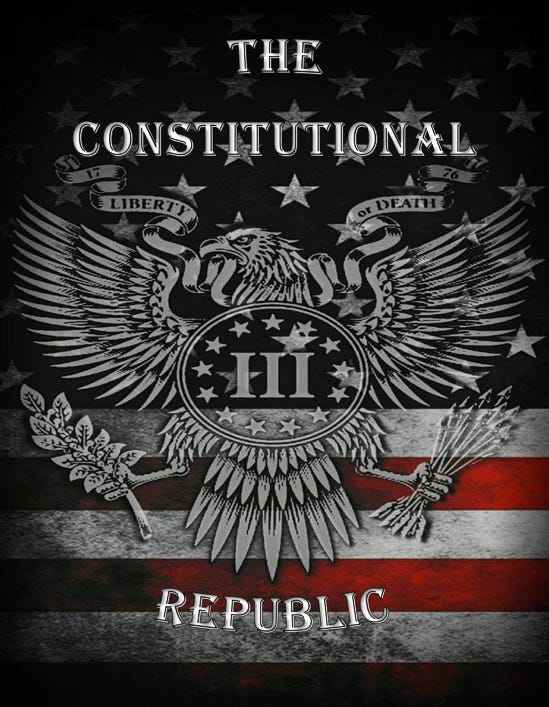
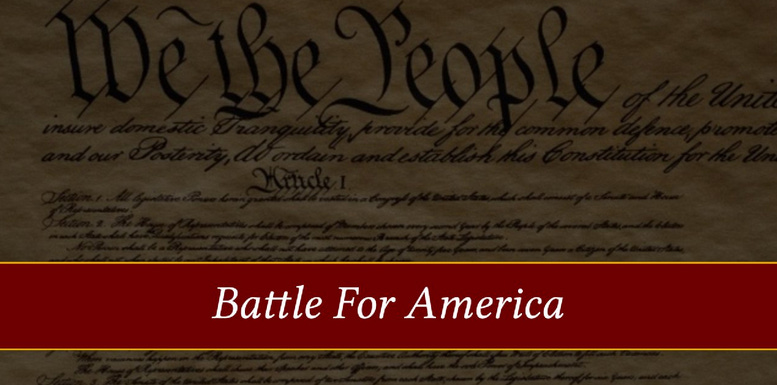

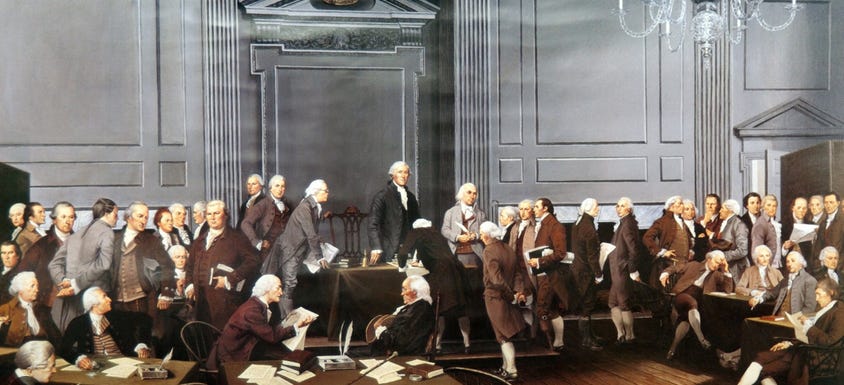
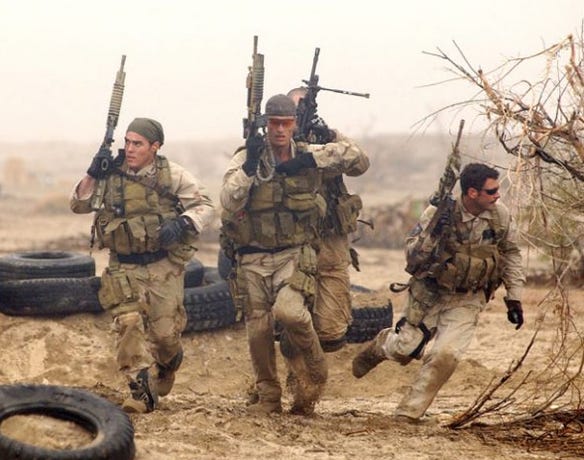
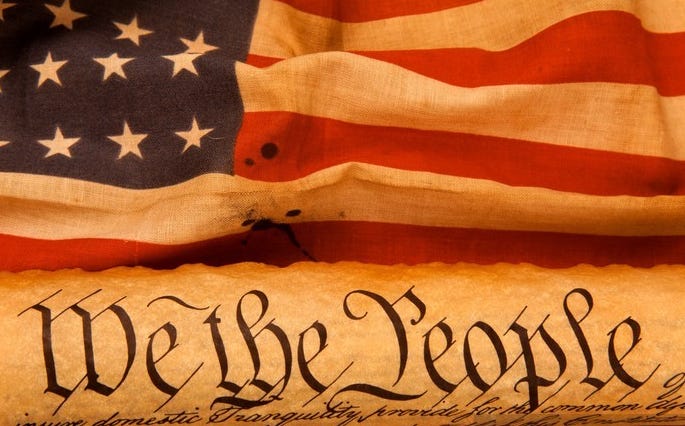


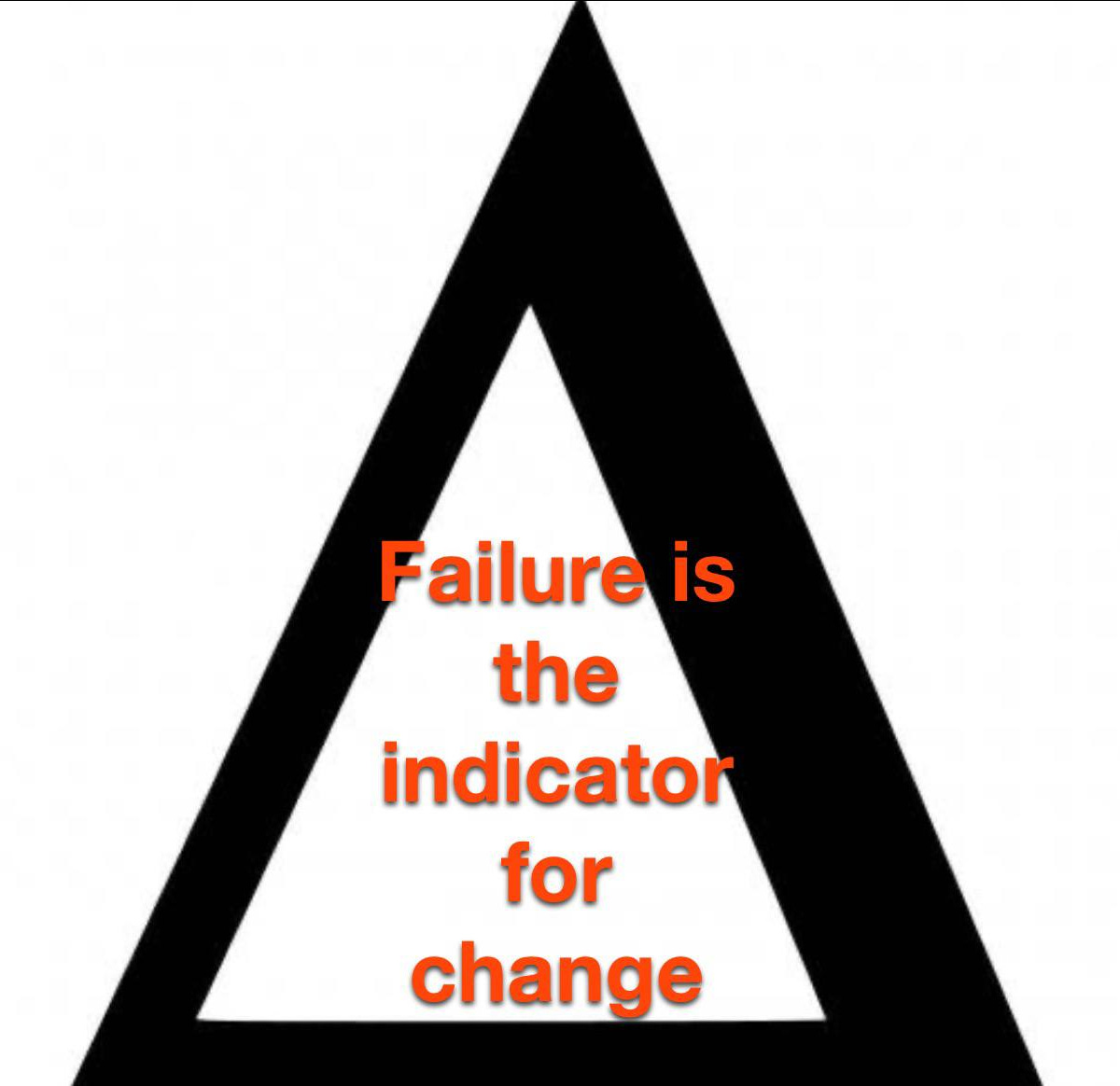

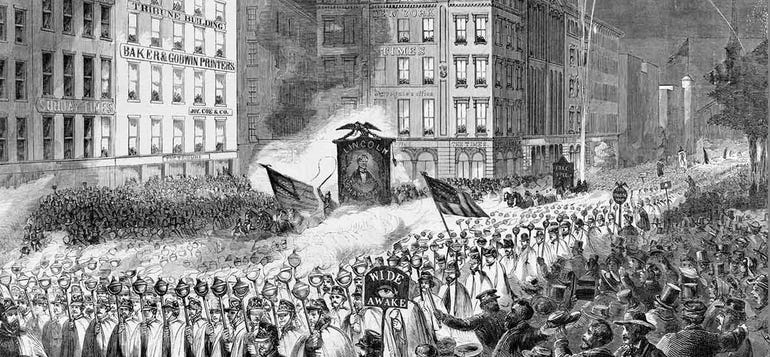
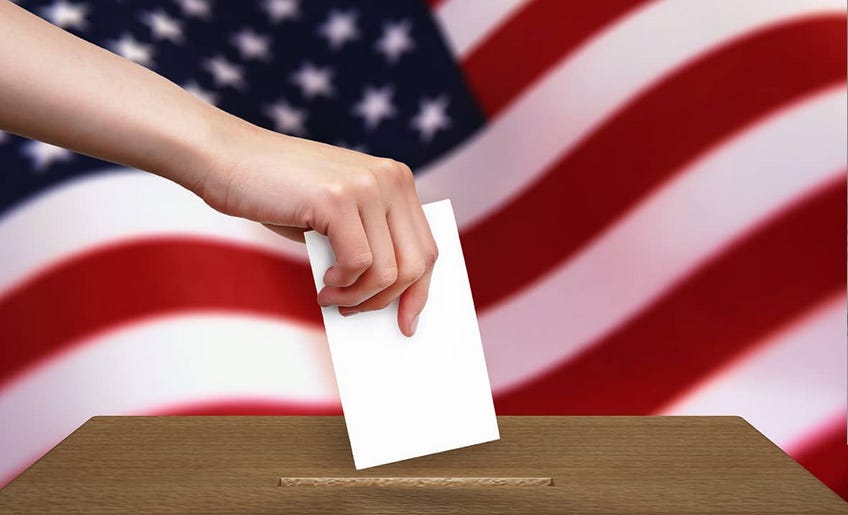
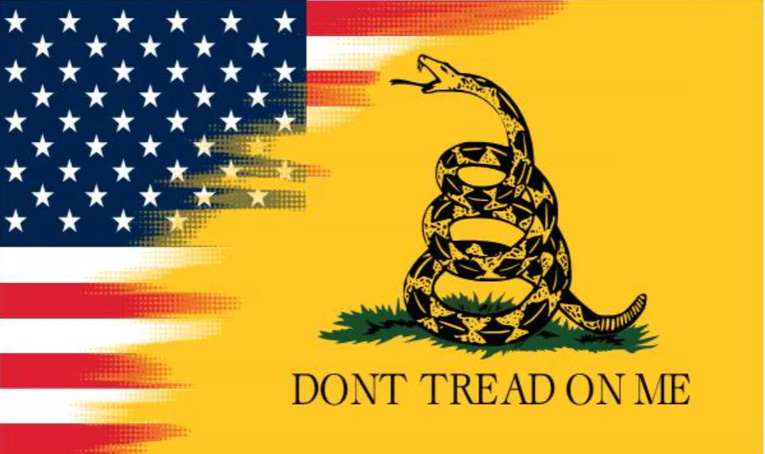
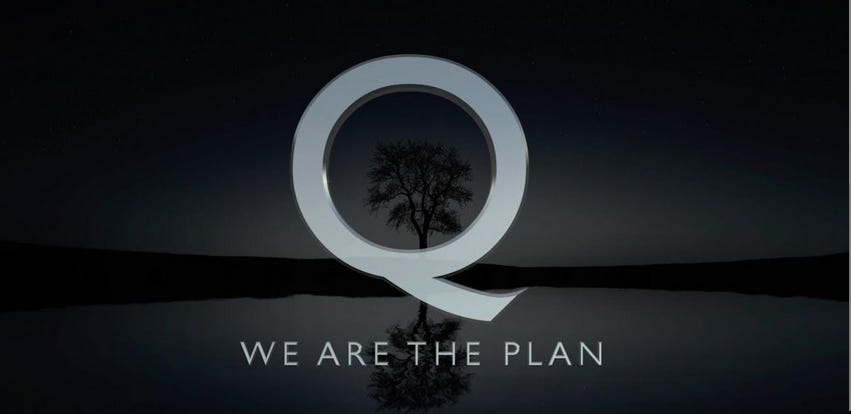
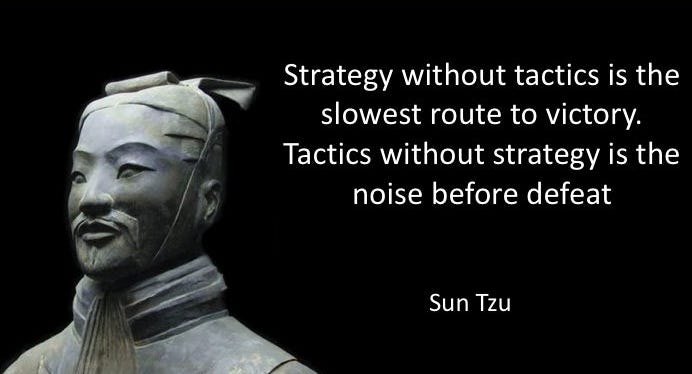
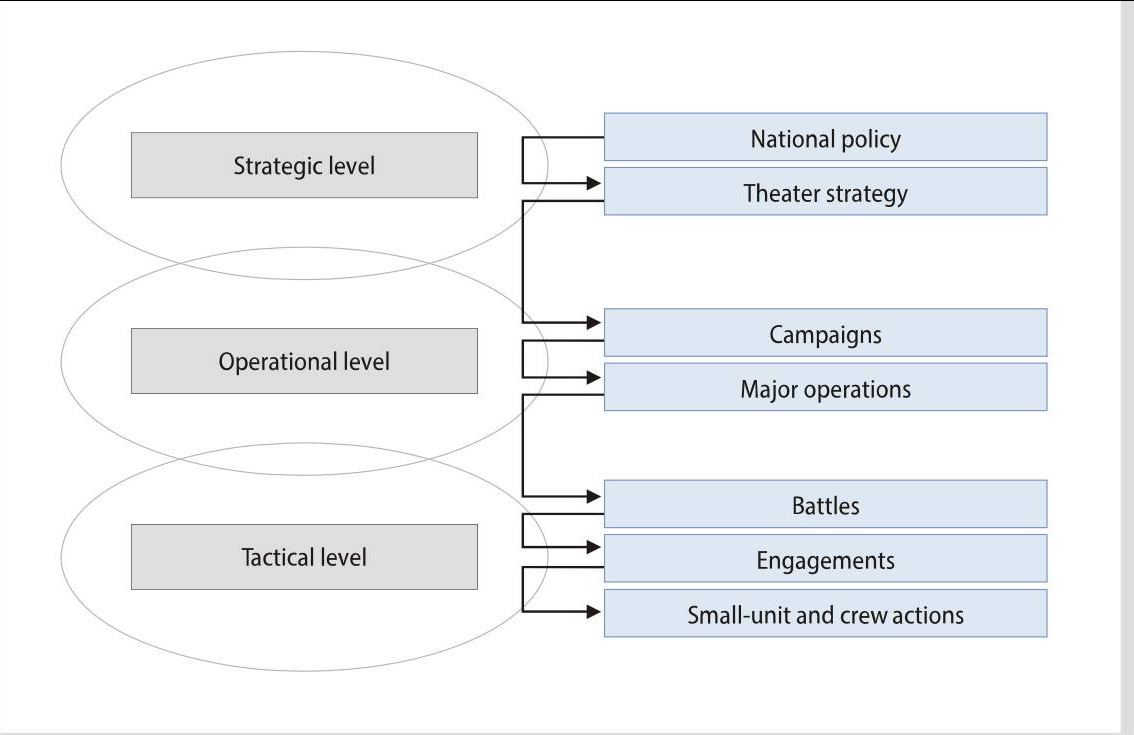
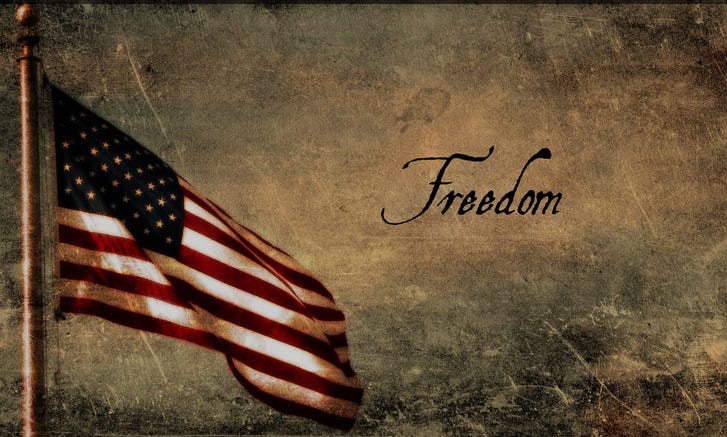
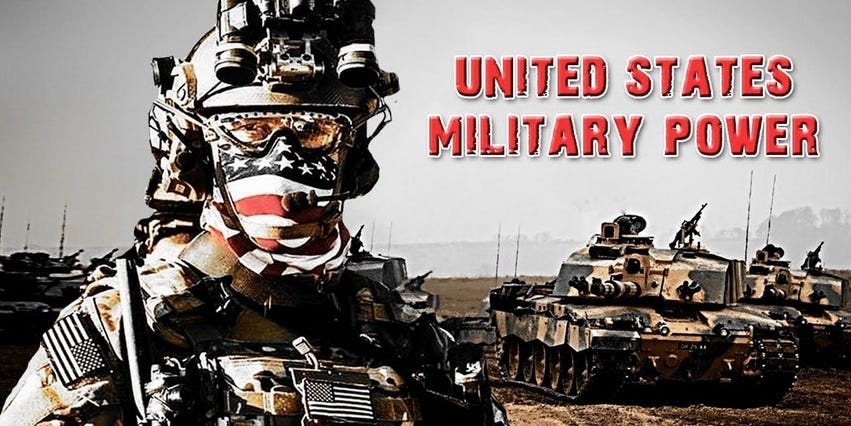
Outstanding read full of usable and obtainable information. I am going to print it so i may refer back to it. Just joined a local group and I totally agree that it MUST be done at local and state levels. Proud to be an American and THANK YOU for your service sir.
Thanks, I read this on my podcast.